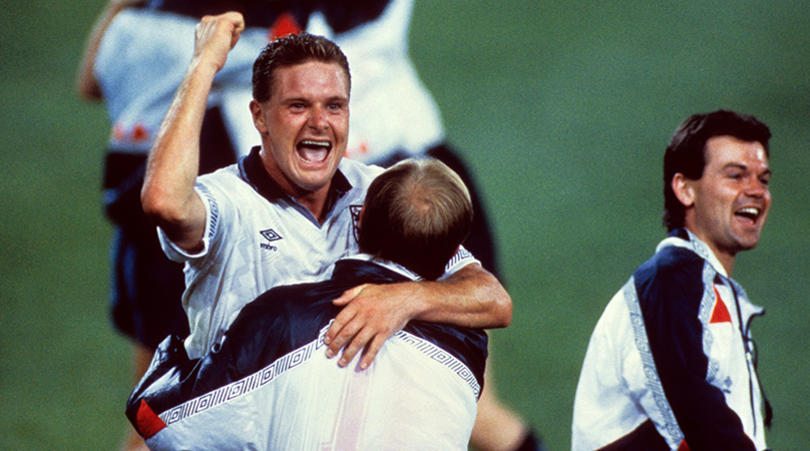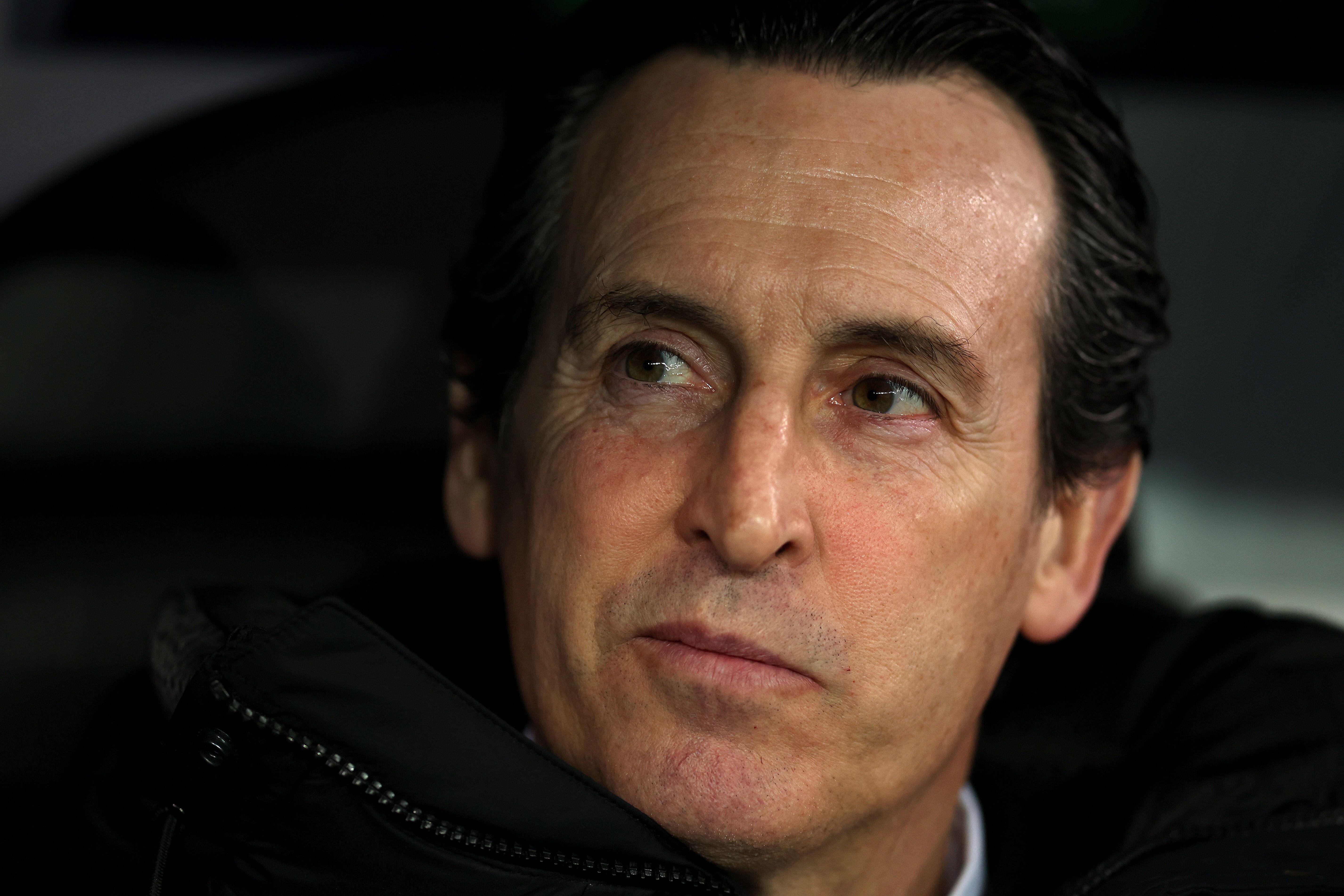World Cup icons: When we all wept with Paul Gascoigne – and remembered him forever (1990)
Gazza's professional career lasted from 1985 to 2005, but he will always be remembered for one month in mid-1990
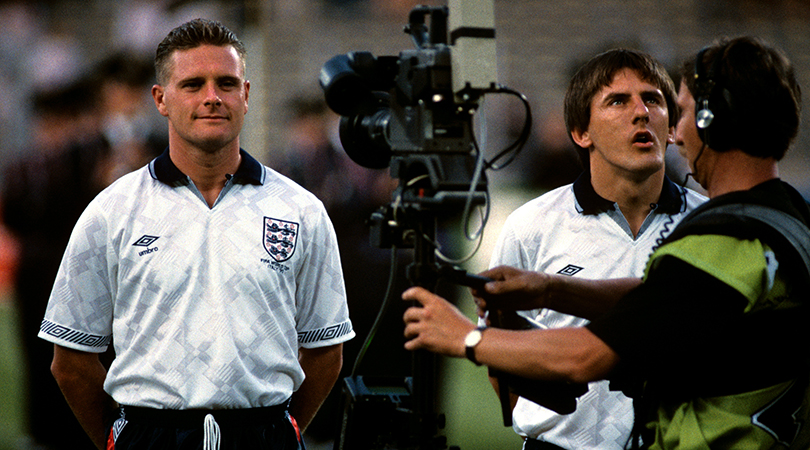
By Italia '90 he was already 23, but hadn't started a competitive international. A central midfielder with Glenn Hoddle’s eye for a pass and Bryan Robson’s love of a tackle, Gascoigne could be inconsistent and positionally suspect. But England manager Bobby Robson couldn't ignore his fellow Geordie’s gifts and took a punt on a swaggering player who possessed “a sort of impudence” and “great confidence” according to Gary Lineker. “You could see he played completely for the love of the game.”
An incendiary talent
Full of love and devoid of fear.
Against the Dutch, winners of the European Championship two years earlier, he tugged Ruud Gullit’s dreadlocks and even Cruyff-turned Ronald Koeman. To Pete Davies, author of the seminal Italia '90 account All Played Out, the new man on the scene represented “the joy of playing football, what we all dream football can be”.
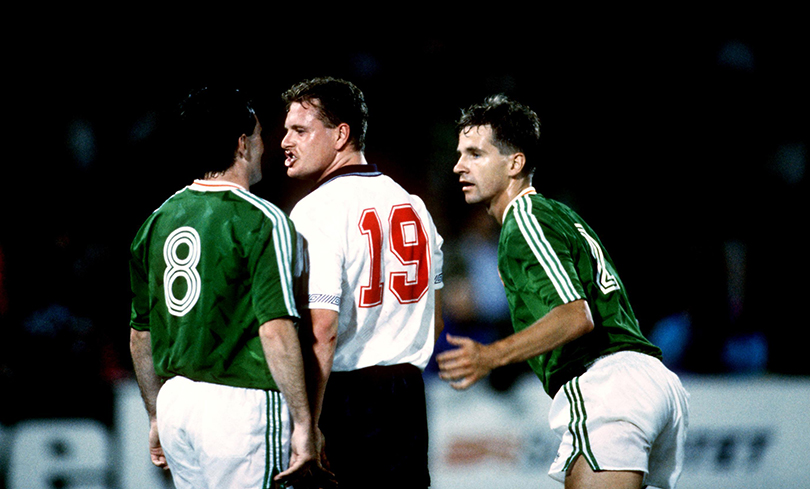
Gascoigne was no smoke-and-mirrors showboater: his creativity was crucial in deciding deadlocked matches. He had floated in the free-kick for Mark Wright’s group-game winner against Egypt, then did it again for David Platt’s against Belgium in the last 16 – after drawing the foul. In the quarter-final struggle against Cameroon, he slalomed through the middle of the park to set up Lineker, who was duly tripped for the decisive penalty.
This playful love of the game struck a chord which swelled to an operatic crescendo, perfectly matched by the BBC’s use of Nessun Dorma as the theme tune, with his emotional reaction to being booked in the semi-final against West Germany. Realising he would miss the final, Gascoigne was in tears. So were England’s fans at home and in Turin’s Stadio Delle Alpi, where they serenaded him, trying to soothe the crying man-child they’d taken to their bosom.
“Weep,” Salman Rushdie wrote about the incident, “and the world weeps with you.”
Get FourFourTwo Newsletter
The best features, fun and footballing quizzes, straight to your inbox every week.
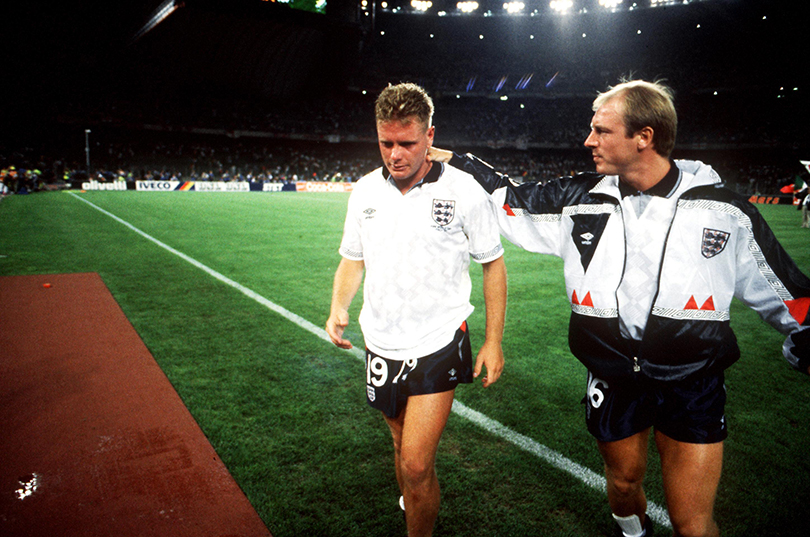
As the shootout loomed, he was comforted by Bobby Robson and senior players. Gascoigne was clearly too distraught to take a penalty, but watched on as his friend-come-minder Chris Waddle stepped up and missed, and England went out. Gazza didn’t know it, but he would never play at the World Cup again.
His career continued, but not at the same trajectory: how could it? He was never the same after the 1991 FA Cup Final, and peaked before his 24th birthday. Injury-enforced time away only increased the off-field problems: domestic violence, alcoholism, mental struggles, fodder for tabloid muck-raking. Euro '96 proved his final England triumph: Hoddle decided he didn’t need him for France '98.
What could have been
And so Gascoigne the icon is remembered as a young man, forever frozen in the infinite potential of beautiful youth. As with rock music’s ‘27 Club’ – Hendrix, Joplin, Cobain, Winehouse – the question is, what might have been achieved?
The 1990-model Gascoigne is as close as the English ever got to the sort of bravura brilliance by which Diego Maradona had dragged the Albiceleste to World Cup glory four years earlier. As Brian Glanville put it, the Geordie displayed “a flair, a superlative technique, a tactical sophistication, seldom matched by an England player since the war”.
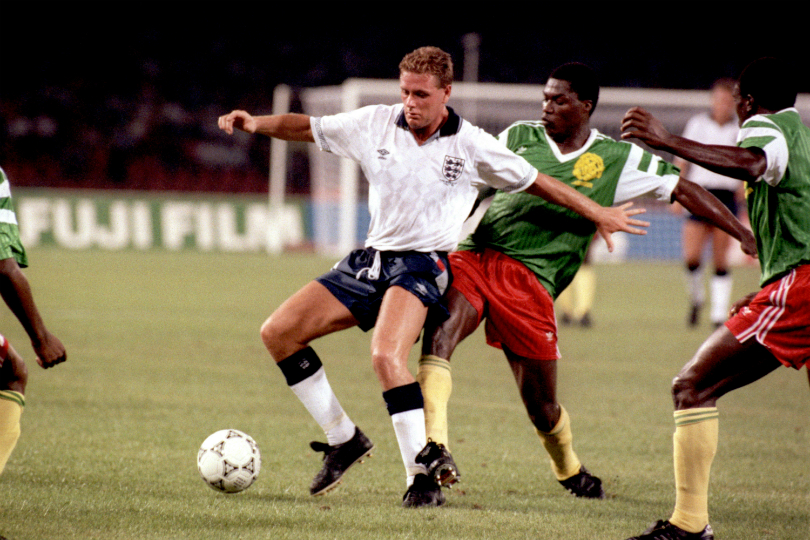
There are cultural reasons for this distrust of the anarchist, or what Henry Winter has called “the institutionalised suspicion of flair in this country”. In the Academy era, many fans see footballers as soulless robots, highly polished media-trained charisma vacuums. To Stuart Pearce, “the modern game is so sanitised and exposed to the media that it almost suppresses personality”.
That couldn’t happen to the irrepressible Gascoigne – a man of the people. Although the tabloids hounded him, they could never quite destroy his popularity. Can you imagine the reaction if Dele Alli told Norway to ‘f**k off’, just as Gascoigne did when asked to ‘say hello to Norway’ by a reporter in 1992?
That typically unguarded episode revealed the hyperreal cartoon personality: not Gascoigne, but Gazza, the clown prince with the painted smile. Look, there he is, stealing and driving a London bus. Here he comes, bringing an ostrich along to training. Now he’s yellow-carding the referee. He’s even got a yet more cartoonish sidekick, Jimmy Five Bellies, as if he’d stepped off the pages of Viz.
Ominous angst
Gascoigne’s inner adrenaline-seeker was always destined to be in trouble after football. Those who are most successful in recovery from addiction come to an accord with life: they don’t replace the highs, which are definitively irreplaceable, whether their origins lie in chemistry or circumstance. What they find is a lower-level but lasting contentment with the ordinary run of life. It’s difficult but millions have managed it, and hopefully Paul – not Gazza, but Paul – can do so too.
He will always be wished well. A flawed human, like the rest of us, he played with an infectious adoration of the game, and memories of Italia '90 will outlive him even if he makes it to his 100th birthday. As Philip Larkin wrote in An Arundel Tomb, describing a memorial six centuries old: “What will survive of us is love.”
Gascoigne loved football, and for that, football fans love him.
Gary Parkinson is a freelance writer, editor, trainer, muso, singer, actor and coach. He spent 14 years at FourFourTwo as the Global Digital Editor and continues to regularly contribute to the magazine and website, including major features on Euro 96, Subbuteo, Robert Maxwell and the inside story of Liverpool's 1990 title win. He is also a Bolton Wanderers fan.
